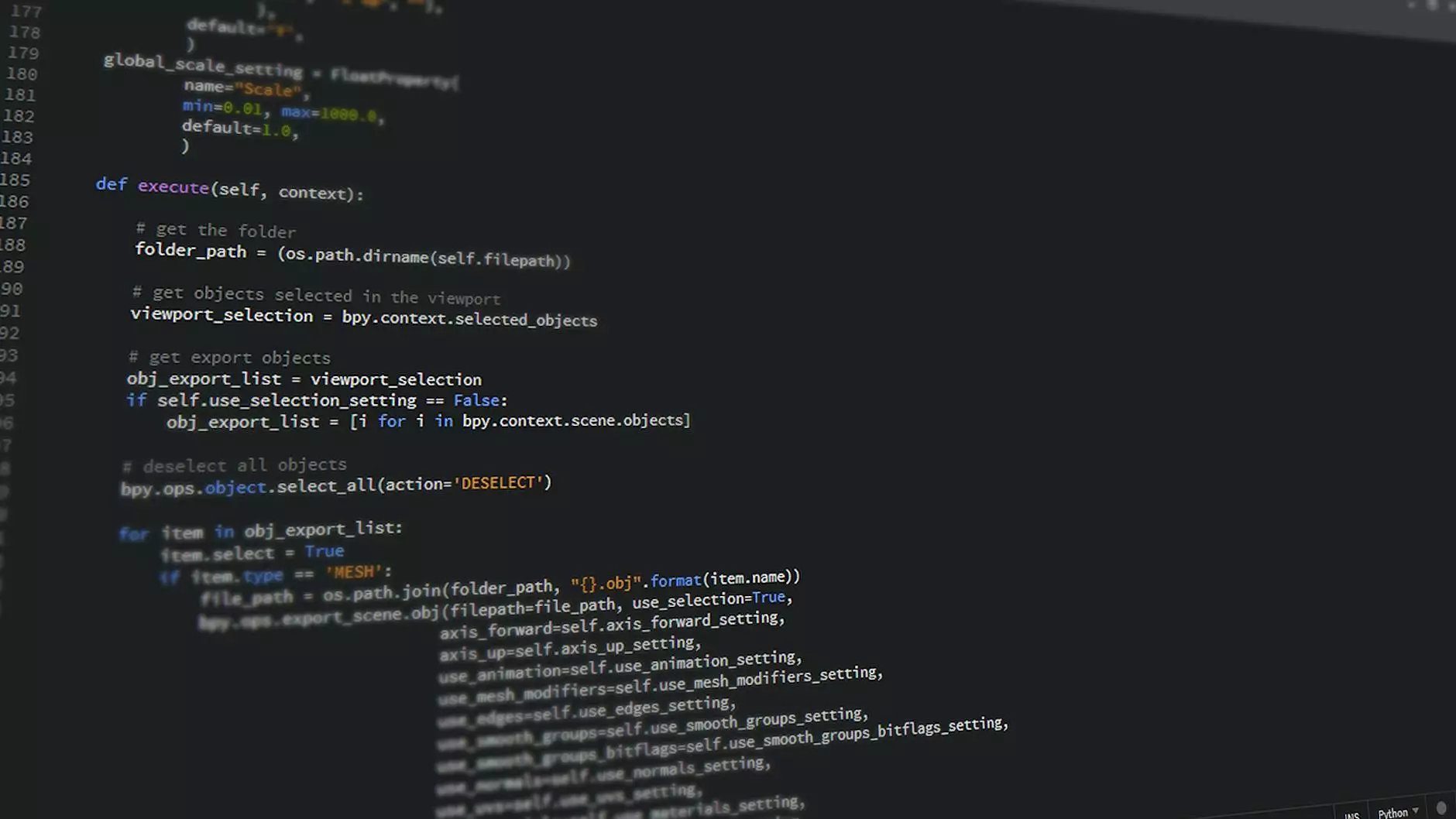Mastering Medical Coding: The Ultimate Course for Beginners

In the ever-evolving field of healthcare, medical coding stands as a crucial pillar that facilitates the smooth operation of medical practices, insurance companies, and health systems. For those venturing into this industry or looking to enhance their skill sets, a medical coding course for beginners is an essential step. In this article, we will explore the ins and outs of medical coding, including its significance, how to get started, and the incredible career opportunities it presents.
What is Medical Coding?
Medical coding is the process of transforming healthcare diagnoses, procedures, medical services, and equipment into universal medical alphanumeric codes. This process is crucial for billing purposes, record-keeping, and ensuring that healthcare organizations are reimbursed for their services efficiently and accurately.
Why is Medical Coding Important?
The importance of medical coding cannot be overstated. Here are some key reasons:
- Insurance Claims: Medical codes are required for insurance claims processing. Accurate coding ensures that healthcare providers are compensated for their services.
- Data Management: Medical coding allows for effective data management in healthcare systems. It facilitates reporting, analysis, and tracking of healthcare trends.
- Regulatory Compliance: Medical coders ensure compliance with healthcare regulations, which is vital for maintaining industry standards and practices.
The Journey to Becoming a Medical Coder
Step 1: Understanding Medical Terminology
A fundamental aspect of medical coding is a solid understanding of medical terminology. This includes knowing the language of healthcare as well as anatomical and physiological terms. A beginner's course typically starts by teaching these terms to ensure a strong foundation.
Step 2: Learning Coding Systems
There are several coding systems you will need to become familiar with, including:
- ICD-10-CM: The International Classification of Diseases, Tenth Revision, Clinical Modification.
- CPT: Current Procedural Terminology, which codes the services and procedures performed.
- HCPCS: Healthcare Common Procedure Coding System, used for billing Medicare and Medicaid.
Step 3: Enrolling in a Medical Coding Course for Beginners
Once you have a grasp of medical terminology and coding systems, the next logical step is enrolling in a medical coding course for beginners. Look for courses that offer comprehensive training materials, hands-on practice, and real-world applications.
What to Expect from a Medical Coding Course
A well-structured medical coding course for beginners will typically include:
- Interactive Lectures: Engaging instructors provide instruction through interactive and informative lectures.
- Hands-on Practice: Coding exercises that challenge students to apply what they've learned.
- Mock Exams: Prepares you for certification exams and real-world scenarios.
- Career Guidance: Insights into job opportunities, resume writing, and interview preparation.
Certification and Career Opportunities
Upon completing your medical coding course for beginners, obtaining a certification is highly recommended. Certification bodies like the AAPC (American Academy of Professional Coders) and AHIMA (American Health Information Management Association) offer recognized credentials that enhance your employability.
Possible Career Paths
With a certification in hand, numerous career opportunities arise:
- Medical Coder: The primary role responsible for translating medical records into codes.
- Billing Specialist: Focuses on the billing aspect and ensures that claims are processed correctly.
- Compliance Officer: Ensures that coding practices adhere to healthcare regulations and industry standards.
Challenges in Medical Coding
While medical coding is a rewarding field, it does come with its challenges:
- Complex Guidelines: The coding systems are comprehensive and require continual education to stay updated.
- Attention to Detail: Accuracy is crucial; even minor errors can lead to significant consequences.
- Technological Changes: The healthcare industry is continuously evolving, requiring coders to adapt to new technologies and coding formats.
Tips for Success in Medical Coding
Here are several tips to excel in your medical coding career:
- Continuous Education: Stay updated with the latest coding changes and healthcare regulations.
- Join Professional Organizations: Being part of professional bodies like AAPC can provide resources, networking, and further learning opportunities.
- Practice Regularly: Consistent practice will improve your coding skills and speed, leading to greater accuracy.
The Future of Medical Coding
The future of medical coding is promising. As the healthcare industry grows, the demand for skilled medical coders is expected to increase. Furthermore, with advancements in technology, the field will likely evolve, creating more opportunities for those willing to adapt and learn.
Conclusion
In conclusion, embarking on a journey to learn medical coding through a medical coding course for beginners is a smart career move. The skills you acquire will not only open doors to various job opportunities but also provide a strong foundation in the healthcare industry. With dedication, continuous learning, and the right resources, you can excel in this fulfilling profession.
Get Started Today!
If you're ready to take the first step, visit pmbausa.com to explore the comprehensive medical coding course options available. Equip yourself with the skills needed for a successful career in medical coding.









